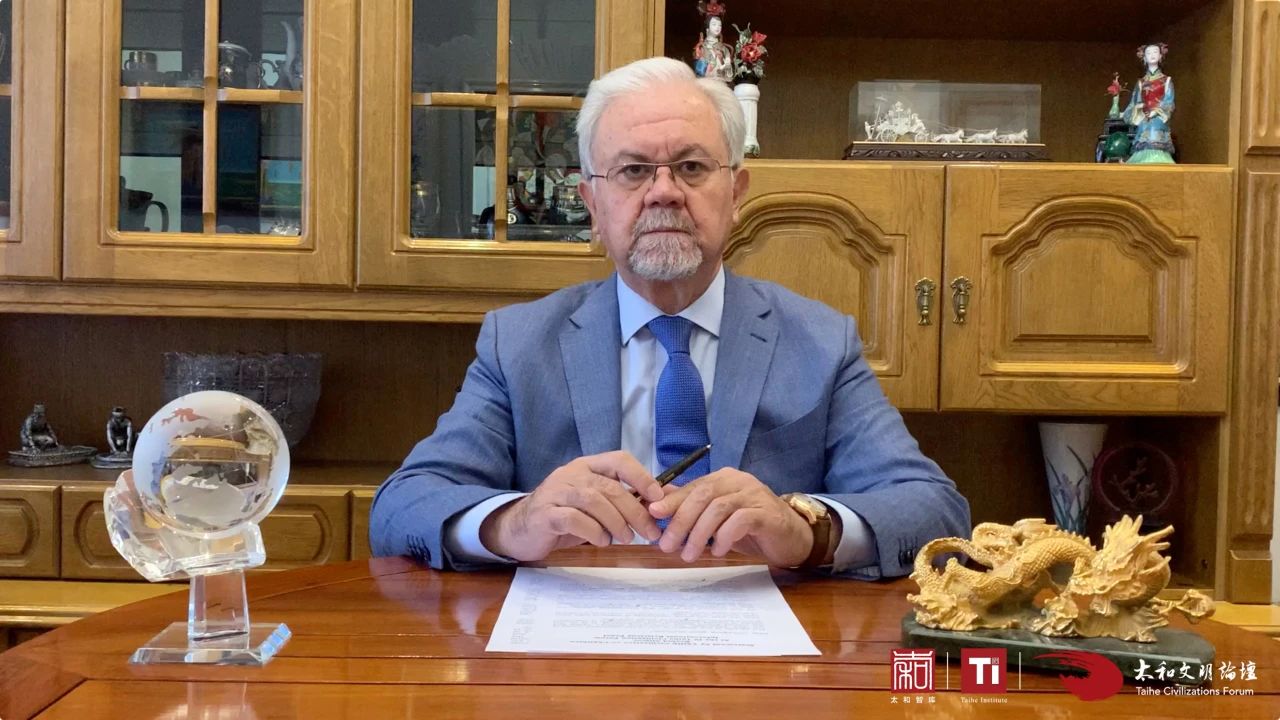Keynote Speech by Rashid Alimovat the International Relations Sub-session

China and the U.S. are permanent members of the UN Security Council, which bears the primary responsibility for maintaining international peace and security. China and the U.S. are two leading world economies that have become closely intertwined over the past 40 years, interdependent and mutually complementary. Any complications or tensions between China and the U.S. negatively affect the global economy. The first concerns the recently presented new U.S. Strategy for Central Asia. As indicated in the document, the key political goal of the U.S. is to help the Central Asian states maintain their sovereignty and resist the dominion of other great powers, primarily Russia and China.
Moreover, the Strategy does not indicate which governments of the Central Asian countries turned to the U.S. with a request to protect its sovereignty. In addition, it is said that the U.S. should become an alternative to the Belt and Road Initiative in the field of strategic development and to the Collective Security Treaty Organization in the field of security. The U.S., as follows from the comments to the Strategy, can offer the countries of Central Asia military equipment and training of military personnel. Such an approach will allow these countries to weaken their dependence on Russia and China, and will open up markets for the American defense industry. Further, the build-up of American military aid will give the Central Asian countries incentives for close cooperation with the U.S. in the fight against regional extremist groups, which the U.S. is interested in from the point of view of its own security. Only in this way, according to the document, the U.S. will be able to prevent the actions of the Russians and Chinese in Central Asia.
In essence, this is not a Cooperation Strategy, but a Competition Strategy, which may lead to an increase in the potential for conflict in Central Asia. Central Asia is not a field for a new “Great Game” that the U.S. is trying to impose on the region, but a broad space for cooperation. Each Central Asian country has its own national development strategy, but there are also common regional goals. First of all, we are talking about systemic security challenges that stem from the territory of Afghanistan. For 40 years, the Afghan “knot” has tightened so much that, despite the efforts of the UN, individual countries and organizations, it has not been possible to loosen it. It is clear that the Afghan conflict has only one way of settlement - political and diplomatic.
The U.S., Russia and China, together with the Central Asian states, could jointly make a decisive contribution to the return of peace and stability to Afghan land. A similar approach should be taken in the fight against the COVID-19 pandemic. The U.S. has not been the best example for the community of nations, leaving WHO in the midst of a pandemic. This step is deeply disappointing. In the face of a common threat to humanity, responsible powers should demonstrate leadership, interaction and cooperation, rather than create tensions. There is still hope in the world that a period of detente will begin in relations between China and the U.S. This is primarily in the interests of China and the U.S. and will serve to improve the environment in international relations as a whole.
-

- The U.S-China Relations Can Be Restarted 13 October , 2020
-

- China and U.S. Enter ‘Protracted War’ 13 October , 2020
-

- The World has Ushered in a New Era of Multilateral Framework... 13 October , 2020
-

- 2020 Taihe Civilizations Forum Content Highlights 17 December , 2020
-
2020 Content Highlights
-

- Zheng Ruolin Senior Fellow of Taihe Institute; Senior Journalist of Wen Wei Post.
-

- Chu Yun-han Professor at the Department of Political Science at National Taiwan...
-

- Zou Ming Vice President of Phoenix New Media Ltd. ; Chief Editor of Phoenix New Media...
